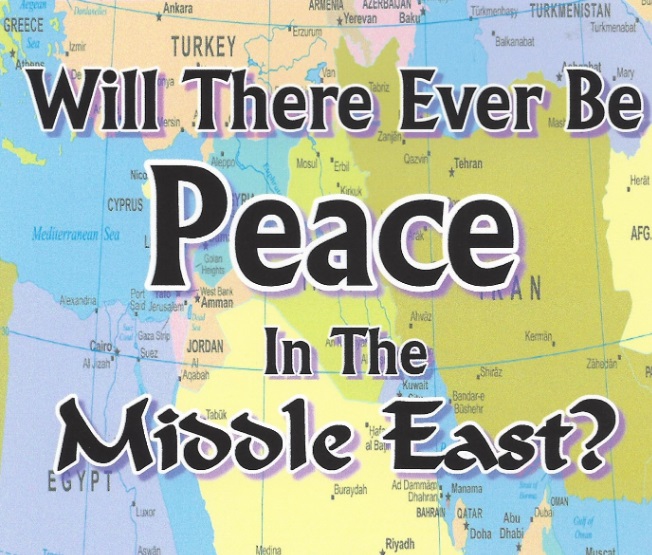
If only, rather than further militarizing the region or questioning the death toll in Gaza, the Biden administration were to focus on making this most recent and ever more ominous crisis a final turning point, not for yet more brutality, but for a long-term political solution focused on achieving real peace, human rights, and equality for everyone in the region. In this moment of grief and rage, when tensions are at a fever pitch and the wheel of history is turning around us, it’s time to demand peace above all else, writes ‘The Counter Punch’.
While the U.S. government refuses to use its considerable power as leverage for peace, ordinary Americans seem to know better. Unlike the days after 9/11, recent polls suggest that a majority of Americans oppose sending more weapons to Israel and support delivering humanitarian aid to Gaza, including a majority of people under the age of 44, as well as a majority of Democrats and independents and a significant minority of Republicans. While Representative Rashida Tlaib, the only Palestinian-American in Congress, was made a pariah and is in the process of being censured by some of her colleagues after her plea for a ceasefire, she actually represents the popular will of a significant portion of the public.
And that, in turn, represents a generational shift from even a decade or two ago. In the wake of this country’s disastrous wars in Afghanistan and Iraq, as well as dozens of other military conflicts globally, many Americans, especially Millennials and Gen Zers, see the U.S. military less as a defender of democracy than as a purveyor of death and chaos. Nearly second-by-second online coverage of the Israeli bombing campaign is offering Americans an unprecedented view into the collective punishment of more than two million Gazans, half of them 18 or younger. (Now, with limited Internet and communications, it’s unclear how word of what’s happening in Gaza will continue to get out.) Add to that the slow-burning pain that has marked life in the United States over the last 15 years — the Great Recession, the Covid-19 economic shock, the climate crisis, and the modern movement for racial justice — and the reasons for such a relatively widespread urge for peace become clearer.
Today, half of all Americans are either impoverished or one emergency away from economic ruin. As younger generations face what often feels like a dead-end future, there’s a growing sense among those I speak to (as well as older folks) that the government has abandoned them. At a moment when the Republicans (and some Democrats) argue that we can’t afford universal healthcare or genuine living wages, the military budget for 2023 is $858 billionand the Pentagon still maintains 750 military bases globally. Last week, without a touch of irony, Treasury Secretary Janet Yellen, who claimed last year that student debt relief would hurt the economy, insisted that the U.S. can “certainly afford two wars.”
Millions of us tuned into President Biden’s Oval Office speech on his return from Israel, only the second of his presidency. There, he asked Congress to earmark yet another $100 billion mainly for American military aid to Israel, Ukraine, and Taiwan (a boon to the war-profiteering weapons makers whose CEOs will grow even richer thanks to those new contracts). Just a year after Congress killed the Expanded Child Tax Credit, which had cut official child poverty in half, Biden’s speech represented a further pivot away from socially beneficial policymaking and toward further strengthening of the ravenous engine of our war economy. After the speech, the Nation‘s Katrina vanden Heuvel offered this compelling instant commentary: “Biden tonight rolled out a version of twenty-first-century military Keynesianism. Let’s call his policy just that. No more Bidenomics. And it consigns the U.S. to endless militarization of foreign policy.”
A decision to organize our economy yet more around war will also mean the further militarization of domestic policy, with dire consequences for poor and low-income people. Reverend Martin Luther King, Jr., once called such steps the “cruel manipulation of the poor,” a phrase he coined as part of his denunciation of the Vietnam War in the late 1960s. King was then thinking about the American soldiers fighting and dying in Vietnam “on the side of the wealthy, and the secure, while we create a hell for the poor.”
Today, a similar “cruel manipulation” is playing out. For years, our leaders have invoked the myth of scarcity to justify inaction when it comes to widespread poverty, growing debt, and rising inequality in the United States. Now, some of them are calling for the spending of billions of dollars to functionally fund the bombardment and occupation of impoverished Gaza and a violent Israeli clampdown in the West Bank, not to speak of the possibility of a wider set of Middle Eastern wars. However, polling numbers suggest that a surprising number of Americans have seen through the fog of war and are perhaps coming to believe that our nation’s abundance should be used not as a tool of death but as a lifeline for poor and struggling people at home and abroad.
In a time of stifling darkness, one bright light over the last weeks has been the eruption of non-violent, pro-peace protests across the world. In Africa, Asia, Latin America, and Europe, hundreds of thousands of people have hit the streets to demand a ceasefire, including possibly half a million people in London. Here in the U.S., tens of thousands of Americans have followed suit in dozens of cities, from New York to Washington, D.C., Chicago to San Francisco.
read more in our Telegram-channel https://t.me/The_International_Affairs

 11:19 11.11.2023 •
11:19 11.11.2023 •






















